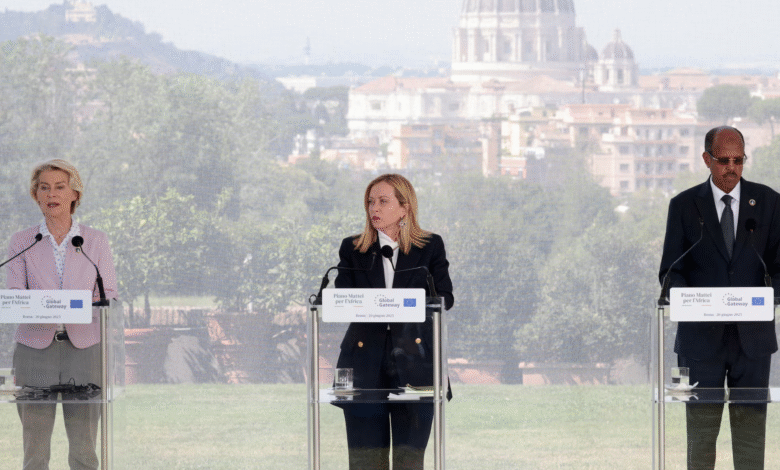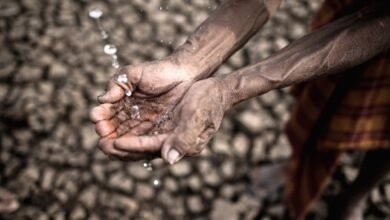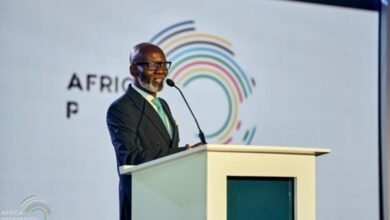Italy–Africa Summit : Rome and Brussels seek a new pact with the continent
On 20 June 2025, Rome hosted a major summit bringing together African leaders, European officials and business actors around an ambitious objective: laying the foundations for a new Euro‑African cooperation through Italy’s Plan Mattei and the European Union’s Global Gateway strategy. Behind the diplomatic momentum, geopolitical tensions, African expectations and civil‑society criticism remind us of the complexity of Europe–Africa relations.

The prestigious grounds of Villa Doria Pamphilj in Rome set the stage for a significant political meeting on 20 June. Here took place the summit titled “The Mattei Plan for Africa and the Global Gateway: A common effort with the African Continent”, co‑chaired by Italian Prime Minister Giorgia Meloni and European Commission President Ursula von der Leyen. This gathering marks a key milestone in the rollout of Plan Mattei, named after Eni’s founder Enrico Mattei, through which Italy seeks to revive a spirit of partnership with Africa.
Plan Mattei : Italy’s bid to become Africa’s preferred EU interlocutor
Through this summit, Rome aims to position itself as Africa’s preferred interlocutor within the European Union, focusing on development diplomacy based on investment, infrastructure and energy cooperation. Launched in 2024, Plan Mattei took on tangible form with the announcement of an initial project package worth €1.2 billion. These initiatives, backed by Italian cooperation instruments and climate funds, target fourteen African countries including Côte d’Ivoire, Kenya, Angola and Senegal.
This Italian assertiveness dovetails with the broader Global Gateway framework, an EU strategy launched in 2021 to mobilize up to €300 billion in investment by 2027, of which €150 billion is earmarked for Africa. Faced with China’s growing presence on the continent, Brussels is seeking to offer an alternative grounded in transparency, sustainability and mutually beneficial partnership. The convergence displayed by the two leaders reflects a strategic alignment between Rome’s national ambitions and the EU’s continental priorities.
Highlighted flagship projects include Italian participation in the Lobito Corridor, an 830 km rail line linking Angola, the Democratic Republic of the Congo and Zambia, with prospects for extension to Tanzania. This logistics axis aims to ease transport of strategic minerals and agricultural products, in line with regional integration. Rome is also investing in digital connectivity through the Blue‑Raman submarine fiber‑optic cable aimed to connect Europe to East Africa and the Middle East. Another notable side initiative: the inauguration in Rome, on the summit’s margins, of an Artificial Intelligence center for sustainable development.
“Investment alone is not enough”
But beyond announcements, African leaders in attendance stressed that the continent’s structural challenges demand more than a simple inflow of capital. Kenya’s President William Ruto notably emphasized that: “Investment alone is not enough” and denounced the crushing burden of debt. He reminded that African countries sometimes pay interest “five times more” than European states on their loans. This reality undermines budgetary room for manoeuver and compromises development prospects. In response, Giorgia Meloni unveiled a debt relief programme, including the conversion of €235 million into development projects and promising a 50 % reduction in the debt of lower‑middle‑income nations.
“We must act at the root” : Migration as strategic anchor
Italy’s repositioning on Africa’s stage is not solely altruistic. It is part of a clear strategic framework: reducing clandestine migration to Europe by tackling its root causes. Prime Minister Meloni stressed that: “The challenge for us is that Africa can grow […] by offering prospects to its youth.”
The slogan “Aid them at home”, frequently used by Italy’s right wing, finds political translation here, combining economic development with migration management. Meloni emphasizes that this is not a charity policy, but a partnership “on equal terms”, breaking away from a “predatory approach” of the past — a pointed reference to France, whose influence is receding in the Sahel.
This Italian diplomatic offensive occurs in a tense European context marked by rising far‑right movements, budget uncertainties and the war in Ukraine. Rome intends to use the Africa card to strengthen its geopolitical standing, especially ahead of the Global Gateway Forum scheduled in Brussels for October 2025. Another Italy–Africa summit is already planned on African soil in the first half of 2026, demonstrating that the initiative is more than just rhetorical.
Yet criticisms are not lacking. Several African civil society organisations denounce an opportunistic logic, where Italian companies — such as energy giant Eni or infrastructure manager Terna — are poised to benefit from projects. According to these voices, Plan Mattei risks repeating neo‑colonial patterns, favouring Italian economic interests at the expense of genuine transfer of sovereignty or local expertise. The lack of systematic consultation with African civic organisations also fuels mistrust.
The official enthusiasm displayed in Rome must therefore not obscure profound questions about project governance, financing conditions, and Europe’s real ability to propose a credible and inclusive alternative to China. While discourses about respect, reciprocity and shared development mark a rhetorical rupture, the concrete implementation of promises will be the true test of credibility for this new partnership.






